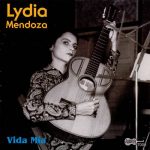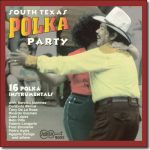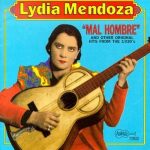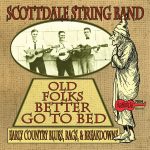Canray Fontenot – Louisiana Hot Sauce Creole Style / Arhoolie CD-381
$14.98
In stock
Description
CD 381
Canray Fontenot – vocals and fiddle with:
(#1-8) Alphonse “Boisec” Ardoin – accordion Morris Ardoin – guitar Lawrence Ardoin – drums and Gustav Ardoin – bass. Recorded near Mamou La. in 1971 & 1973.
(#9-21) Michael Doucet – mandolin and fiddle. Recorded in Welch La. May 14 1981.
(#22) Danny Poullard – guitar and Edward Poullard – accordion. Recorded in Long Beach Ca. June 2 1991.
(#23-26) Michael Doucet – fiddle David Doucet – guitar Sonny Landreth – dobro guitar Tommy Comeaux – mandolin & guitar Billy Ware – percussion Tommy Alesi – drums Tina Pilione – bass. Recorded in Crowley La. June 15 1985.
(#27) Solo – recorded during filming of “J’ai Été Au Bal (I Went To The Dance)” in Spring of 1987 outside Canray’s house.
“Canray Fontenot has long been hailed as the greatest Black Louisiana French fiddler of our time. The sounds that emanate beyond his magical strings run the gamut from sadness loss and despair to joy fulfillment and wisdoma chosen course that exposes one’s most sensitive feelings to life’s fullest experiences.”
(Michael Doucet)
1. Les Barres De La Prison (The Prison Bars)
2. Canray’s One Step
3. Tes Parents Ne Veulent Plus Me Voir (Your Folks Don’t Want To See Me No More)
4. Joe Pitre A Deux Femmes (Joe Pitre Got Two Women)
5. Allons Danser
6. Bernadette
7. Bonsoir Moreau (Good Evening Moreau)
8. Lorita’s Blues
9. La Valse De Mom Et Pop
10. Two-Step De Grand Mallet
11. Les Plats Sont Tous Mis Sur La Table
12. Hey Hey Blues
13. Midland Two-Step
14. La Coulee Rodair
15. Le Slow Drag A Nonc Adam
16. La Robe Barree
17. Old Carpenter’s Waltz (La Valse Du Vieux Charpentier)
18. Bee De La Manche
19. La Jog A Plombeau
20. Jig Cajin
21. Malinda
22. Fi-Do (Dixieland)
23. Shoo Black
24. Canray’s Breakdown
25. La Table Ronde (The Round Table)
26. Les Blues A Canray (Canray’s Blues)
27. Bernadette (2)
REVIEWS
“From the bottom left-hand corner of New France `Louisiana Hot Sauce’ displays the superb instrumental and vocal style of Canray Fontenot the most famous living exponent of black Creole fiddling. Fontenot’s father Adam – known as Nonc Adam – was an accordion player of some note and encouraged his son once he’d learned the basics to sit in with him. Tunes like the marvelously titled `Slow Drag A Nonc Adam’ obviously date back to these early years.
We’ re in reissue territory here with material from two previous Arhoolie LPs but also a healthy 11 tracks previously unissued. The transition from the opening band numbers also featuring accordionist `Boisec’ Ardoin to the sparse stripped-down solos and duets with Michael Doucet give a wonderful insight into his playing of two-steps waltzes and blues.
For a man who once said `I just play `cause I can play’ his music is never anything but totally engaging. Whether it’s raunchy breaks and fiddle echoed vocals on the bluesy `Joe Pitre A Deux Femmes’ or the unaccompanied Cajun-style fiddling of the Two-Step De Grand Mallet with its extra beats and irregular bar lengths – but solid foot-slap rhythm – you can always sense the player behind the fiddle his pain humour and compassion. Entirely recommended. The cover art is tasty too.”
(Pete Cooper — Musical Traditions)
“This is not a new CD but since Fiddler Magazine was not around in 1992 we’ll review it now. I’ve had this CD for about a year now and it is on my personal top ten list. I never get tired of it. Canray’s voice and fiddle both convey at different times heartfelt blues and joyous revelry. At times relaxed at times energetic it is obvious that this music comes naturally to Canray. This CD includes twenty-seven songs recorded over a period of twenty years giving us a good glimpse of “the genius of Canray Fontenot.” On various tracks Canray is accompanied by Alphonse “Boisec” Ardoin Morris Ardoin Lawrence Ardoin Gustav Ardoin Michael Doucet Danny Poullard Edward Poullard David Doucet Sonny Landreth Tommy Comeaux Billy Ware Tommy Alesi and Tina Pilione. Michael Doucet provides an excellent introduction and notes to all songs. Canray sings in French but English translations of all songs are included. If you’re even remotely interested in Cajun or Creole music this CD is a must-have. Highly recommended.”
(Mary Larsen — Fiddler Magazine)
CANRAY FONTENOT OBITUARY:
CANRAY FONTENOT (1922-1995) Louisiana lost a great artist and a charismatic ambassador when Creole fiddler Canray Fontenot died July 29 after a lengthy battle with lung cancer and diabetes. Born in L’Anse aux Vaches on Oct. 23 1922 Canray was a living bridge between turn-of-the-century musical styles and today’s younger musicians. His father `Nonc’ Adam Fontenot was a legendary accordion player and contemporary of Amédée Ardoin. Orphaned at a young age Canray did manual labor all his life yet traveled the world and won such prestigious awards as the National Heritage Award from the NEA.
Canray’s unique style was bluesy yet melodic. His wild slides and gravelly vocals were always accompanied by his mile-wide grin. Canray originals such as “Joe Pitre a deux femmes” “Les Barres de la prison” and “Bonsoir Moreau” have become standards in the Cajun and Zydeco repertoires.
He and his wife Artile raised six children four of whom went to college and one of whom is a lawyer. Canray played and traveled to the end teaching and performing with long-time partner “Bois-Sec” Ardoin at Port Townsend Washington shortly before he died.
One of my first recollections of Canray was trying to find his house out in the country near Welsh Louisiana in 1973. His instructions were “Turn right on the first gravel road and go on a bit until you get to another one then take a left near Mr. Martell’s then take a right after you pass the oak tree that got hit by lightning then a left and then you’ll see my house because it’s the one that has only one tree in the front yard.” Remembering Canray’s directions was crucial since he didn’t have a phone in his house until 1990. I can still remember the overwhelming warmth upon entering his home. That night Canray played old Creole fiddle tunes waltzes mazurkas stringband numbers New Orleans jazz numbers blues original songs on fiddle guitar harmonica and jaw harp. Then he began singing unaccompanied ballads in French that sounded so ancient but so natural. He could make his fiddle cry then he could make it laugh with trilling double stops!
Perhaps the most amazing aspect of Canray’s talent was how he could blend ancient French songs with his own creole rhythms to create his own recognizable style in new songs. For example his “Bonsoir Moreau” was unusual to Louisiana French music in that it was played in a minor key. Canray played it effortlessly in third position with so much emotion and the bluesy context of the song really set it apart. Humorous neighborhood stories like “Bee de la Manche” were put to music and told the story of how Bee resorts to stealing sheep and is eventually jailed all because the widow Adelina is costing him a great deal of money.
Canray Fontenot sitting in his favorite rocking chair with fiddle in hand singing and tapping out the rhythms on his hardwood floor with his bare feet smiling and passing on forgotten songs whose poetry he lived through. His life was not easy but he expelled his troubles through his music a gift which he shared with his neighbors and the world. We mourn not just the man and his talent but a soulful eyewitness to our musical history.
His voice has left us but his soulful songs remain to remind us of what his grandfather used to tell him: “If you remember my song you’ll remember me.”
(Michael Doucet)
Additional information
| Weight | 0.31 lbs |
|---|
You must be logged in to post a review.






Reviews
There are no reviews yet.